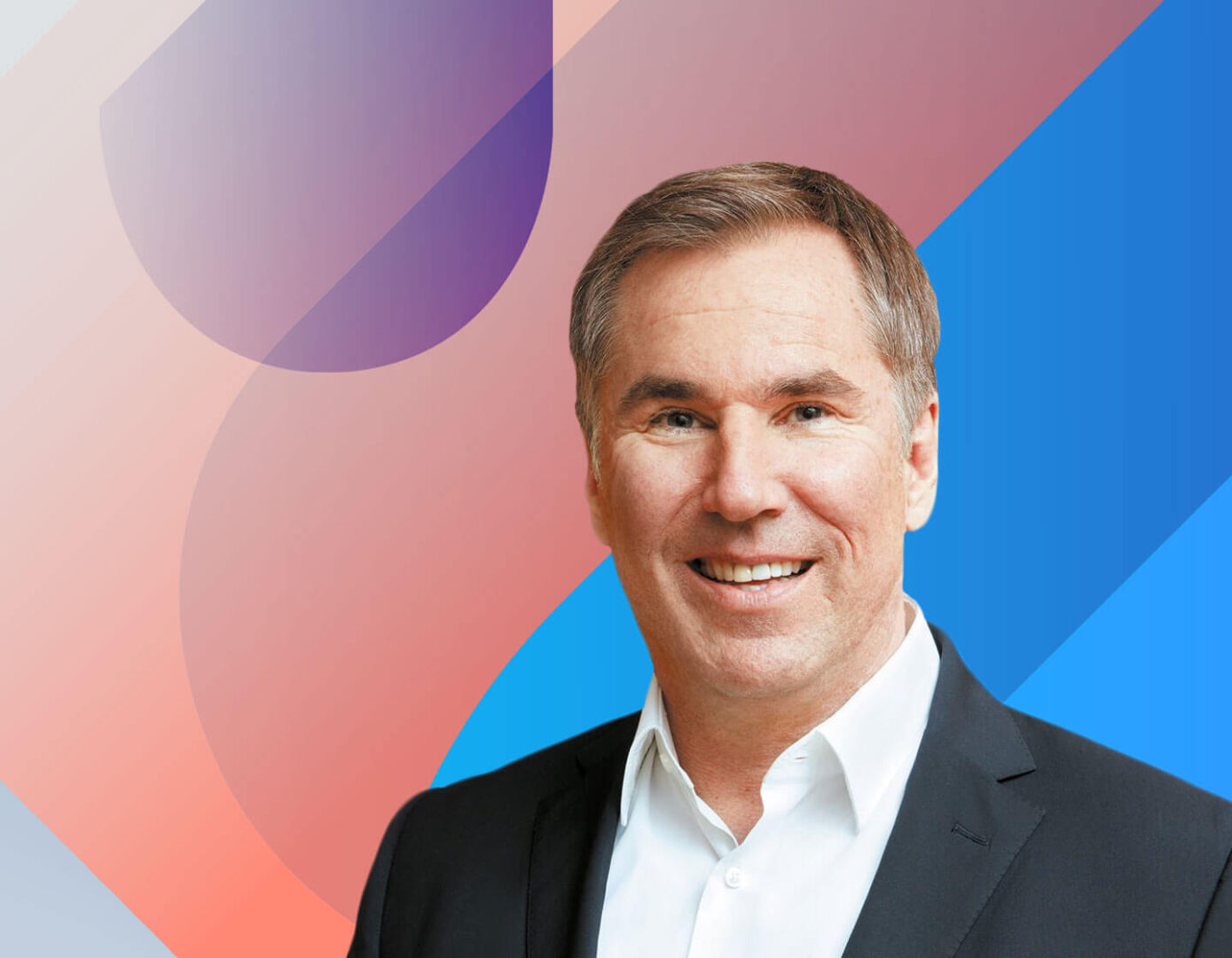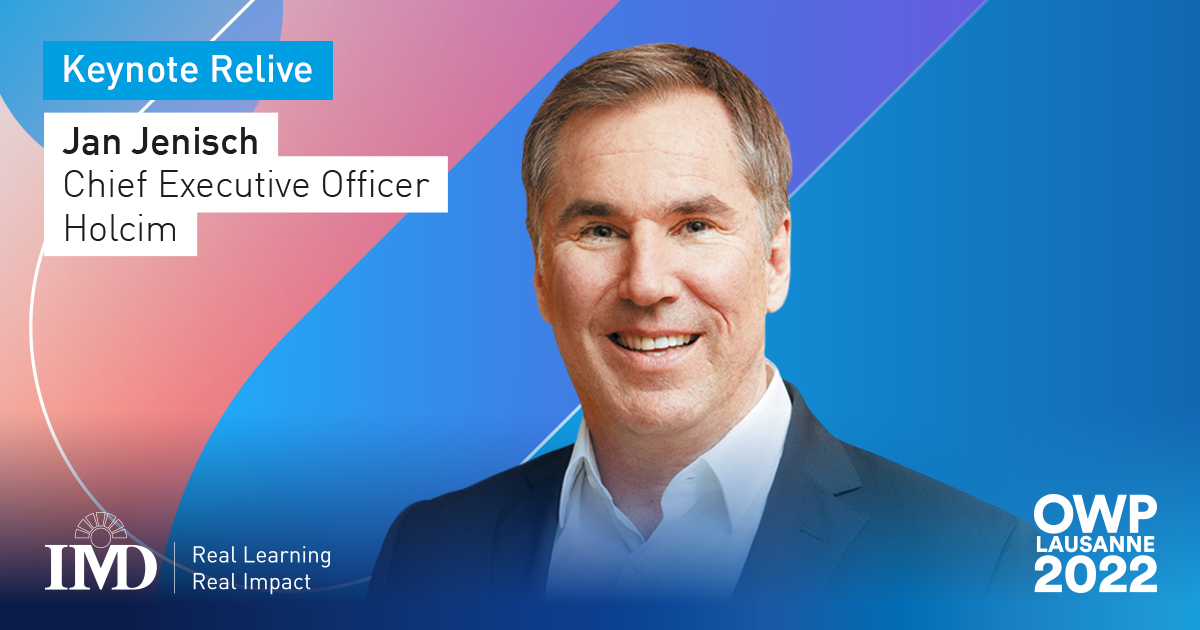
Faced with fast-moving megatrends of the Fourth Industrial Revolution, Jenisch said, CEOs have a responsibility to create the conditions for innovators and the next generation to transform industries – and then to get out of their way.
“We need to transform to have our place in the world tomorrow. We need to make it happen and to make it happen very fast,” he told Orchestrating Winning Performance participants during his keynote address.
“As CEOs of the company, we have to accept the reality of these needed changes,” he said. “There are too many CEOs trying to be in the driver’s seat. My job is to understand the importance of this, to understand that I should not be the bottleneck, and to delegate this to the next generation.”
With the building industry responsible for 38% of all emissions globally, Jenisch is tasked with driving Holcim’s own transformation from the global leader in building solutions to the global leader in innovative and sustainable building solutions.
“We, of course, have high pressure to decarbonize Holcim and to be part of the solution,” he said. “We need to define together how we build and live into the future.”
For Holcim, this means building more with less at the construction phase, for example, by reusing demolition materials and decarbonizing its products; making buildings more energy efficient when they are in use; and transitioning to a circular construction economy. There is also a need to lobby for new national building norms and standards to encourage greater uptake of sustainable solutions in the industry and to change consumer behaviors.
At Holcim, Jenisch has the additional challenge of changing the culture of a traditional, 110-year-old company, for example, to attract and retain more diverse pools of talent. Currently, women make up 15% of Holcim’s global workforce and 30% of executive committee positions.
“Diverse teams work so much better,” he said.
Jenisch shared six reflections for business leaders faced with juggling similar challenges in organizational transformation.
Accept the new reality
Digitalization, diversity and sustainability are reshaping our world, Jenisch said. CEOs and organizations that do not accept this, and do not act quickly enough to adapt, will not have a place in tomorrow’s world, he argued.
Do not be the bottleneck of change
It is not the job of the CEO to be in the driver’s seat for every innovation or to be the expert on all the latest trends. Instead, Jenisch emphasized the importance of enabling and empowering talent with the right knowhow to lead the charge in the transformation of organizations.
Agility and speed over perfection
There is no point in waiting for the ideal solution for the complex challenges of an ever-changing world, especially when it comes to megatrends such as a digitalization, diversity, and sustainability.
“All these areas are not fully developed,” he said. “You cannot wait for the final outcome or the perfect plan. You had better keep on ‘doing’ today, and improve step by step, otherwise you are going to be too late.”
Partnerships are key
Holcim has fostered more than 500 start-up partnerships in an open ecosystem to innovate new ideas for the sustainable future of building.
“These trends are very complex, especially sustainability,” Jenisch said. “We need partners to decarbonize our operation. We need partners to develop the solutions – we cannot do this alone.”
“Companies normally like to do everything by themselves and take a strong lead, keeping the knowhow inside,” he added. “For sustainability, you need more of an open network and to partner with people who know how to make it happen.”
Empower people through flat organizations
The days of top-down, traditional organizations are numbered because such structures stifle talent, diversity and innovation, he said.
“You can only make it happen if you have a modern company, with no hierarchies, where everyone can speak up – if they are 25 years old or 60 years old,” he said.
Focus on culture and talent
With about 70,000 employees across 60 countries, maintaining a common purpose and culture is crucial for a company the size of Holcim – and others.
“The culture of your organization, the purpose of your company, the way you do teamwork and the way you work without hierarchies – that is really key for the future,” Jenisch said. “No young person wants to work in a traditional company – they want much more than that. So, be attractive and meaningful for the next generation.”



